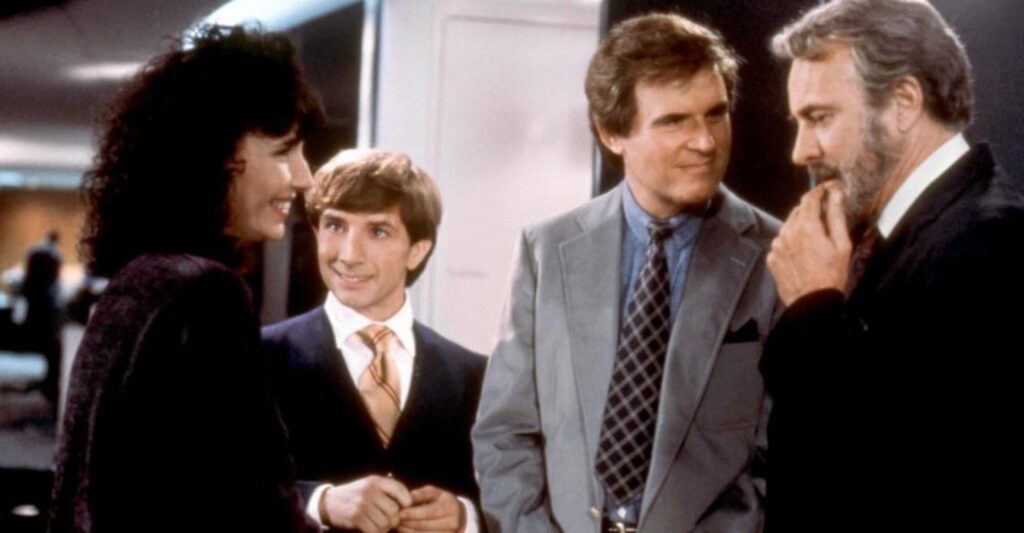
Back in the day, Clifford (1994) was one of the films I rented most often from Pathmark (back when grocery stores rented VHS tapes). It’s always been a favorite film of mine and I have never understood why so many people hated it so much. Luckily, the fine folks at Scorpion Releasing must agree with me since they have issued a really finely restored version of the film on blu-ray earlier this month. Not only do I get to upgrade from Laser Disc, but more cinephiles will come to know the demented brilliance of Clifford.
Clifford was originally intended to be released in 1991 but was withheld due to distribution problems. Three years later, and with the bookending sequences added, Clifford was set loose to poor reviews and miniscule audiences. Unlike films such as Rubin & Ed (1991) or Innerspace (1987), Clifford didn’t find a wide cult following on the video market and was fated to drift into obscurity. Clifford was simply a film ahead of its time.
The approach the filmmakers took to the project (director Paul Flaherty and writer Steven Kampmann) was to bring the Jerry Lewis style into the arena of adult anxieties of the 1990s. A forty year old Martin Short as ten year old Clifford is pure Jerry Lewis, and it’s doubtful any other performer could have pulled this off better than Short. Clifford’s adult counterpart Uncle Martin (played by the amazing Charles Grodin) assumes the role that, forty years earlier, would have been played by Dean Martin.
The relationship between Clifford and Uncle Martin forms the central sociological complex of the film. Uncle Martin, on the one hand, aspires to societal conformity and has invested his whole identity in acquiring that goal while, on the other hand, Clifford knows the shortcomings of society and opts to exist beyond it to serve the pursuit of his goal to get to Dinosaur World. So the basis of all of their interactions becomes a matter of Clifford denying Uncle Martin entry into society and Uncle Martin’s retaliatory attempts to impose that same society onto Clifford.
This “dance” around societal acceptance forms the basis of a number of nineties comedies, particularly the Bill Murray vehicles What About Bob? (1991) and superior The Man Who Knew Too Little (1997). The difference between Murray’s protagonists and Martin Short’s Clifford is that Murray is simply oblivious as to how society functions, thus retaining his innocence à la Charlie Chaplin. Since Clifford so obviously understands society’s various machinations, and employs them to manipulate the people around him mercilessly, he is incapable of retaining innocence or achieving acts of heroism. The same is true of Uncle Martin; neither character is ever wholly sympathetic.
This renders the film Clifford as a kind of manic nightmare an adult may have about the fears of parenthood, which is reiterated consistently by the Mary Steenburgen character Sarah Davis (a preschool teacher and Uncle Martin’s fiance). Uncle Martin initially takes on the task of looking after Clifford to prove to Sarah that he not only likes kids, but wants them as well. Of course, within the narrative economy of a nineties comedy, Sarah desperately wants children and sees that desire and its fulfillment as essential to defining her own persona as an adult. In turn, Sarah’s desires become roadblocks for Uncle Martin that prevent him from escalating things with Clifford for the first two acts of the film.
One of the things that is undeniable about Clifford is its audacity in making almost every character despicable by the end. In the final confrontation at the Larry The Scary Rex ride in Dinosaur World one is constantly shifting affiliations, hoping one moment that Grodin does Short in and then the next wishing Short would best Grodin. It’s a high stakes moment of parental anxieties and childlike self involvement run entirely amok that still manages to conjure laughs which are reminiscent of the comedic games of one upmanship that Arbuckle and Keaton were famous for.
Given that Clifford is as dark and twisted as it is, it’s almost no wonder that before national distribution a framing device was added to try and put a “moral spin” on the bulk of the film. Of course this tactic fails terribly, succeeding only in muddying the brilliance of the rest of the film. Clifford, for me at least, is one of those great nineties films like Rubin & Ed (1991) that has to be seen and ought to be far more popular.
